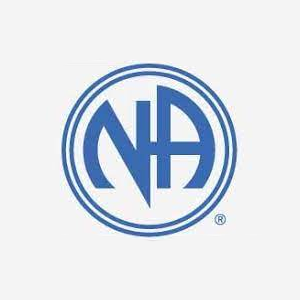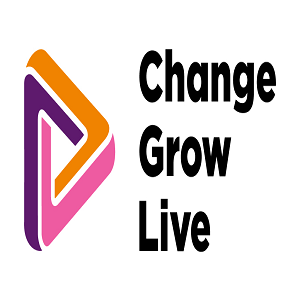Drug & Alcohol Rehab in Cheltenham

How Does Rehab Work?
Rehabilitation is a process that helps individuals in working towards restoring balance and well-being. Rehab is designed for addressing the patient holistically with individualised therapy aimed at addressing addictive behaviours. With guidance from a professional therapist or counsellor, coping mechanisms are taught and individuals can access much-needed support. Strategies deal with relapse prevention and clients can be assigned to an extended inpatient programme or move to an outpatient programme. With inpatient rehab (residential rehab), individuals will reside at the rehab centre for the duration of treatment. Outpatient services are an alternative option in which clients will attend daily/weekly sessions for therapy but will not attend a full-time programme. There are both free and paid outpatient services available within the UK.
What Happens During Residential Rehab?
When you are ready to enter rehab for drug and/or alcohol addiction, it is a brave step towards recovery. Although achieving balance and breaking the cycle of addiction takes some time, it can be achieved. To assist you to make an informed decision concerning rehab, we look at the options available and what happens during rehab.
Rehabilitation from addiction starts with a professional medical evaluation. This evaluation or assessment helps the professional decide which treatment plan is most suited to your circumstances. Therapy differs from one person to the next depending on the history of drug or alcohol use and the presence of comorbidities (such as depression).
An assessment is followed by detoxification. Detox is a structured process and is performed in a residential rehab or at home with support from a medical professional (outpatient services). During this period, individuals abstain from drugs and/or alcohol use until the drug/alcohol is no longer present in the system. Because of the difficulties associated with withdrawal, a medically supervised detox from drugs and alcohol is advised.
Rehabilitation includes meeting with a counsellor for private & group sessions, participation in skill-building activities as with an inpatient or residential rehab, or group meetings that are common with outpatient 12 Step programmes. We explore the different phases of rehab in more detail.
1. Assessment

To receive the best treatment to meet your needs, an assessment is definitely the phase of the recovery process. Assessments are performed with a medical expert and can include a telephone screening. The professional asks questions with regards to your overall health, your substance use, any history of addiction, and whether you have any comorbid mental health conditions. A telephone assessment offers staff private information that will help to safely handle the detox process.
Should you or someone you love require support to overcome addiction, it starts with an individual assessment. The purpose is to determine the right therapeutic approach for the management of addictions and possible comorbidities.
2. Detox

Detox will be completed prior to therapy. It is often performed in a residential clinic where individuals can receive 24/7 care to ease withdrawal symptoms.
It is best to have a managed medical detox because the experienced staff is readily available to help you through withdrawal. As the substance is removed, you may begin to develop withdrawal symptoms. Without professional help, there is a higher risk of relapsing. Detoxification is followed by a fully tailored therapeutic programme. You can attend inpatient or outpatient therapy that is guided by trained addiction therapists and a dedicated team.
3. Therapy

Therapy begins when the body is rid of substances including alcohol. The option of being assigned to an inpatient or an outpatient service will depend on the individual assessment, finances, and life commitments. Therapy that is offered in treatment ranges from individual counselling with a therapist, the attendance of group therapy, and emphasis on developing positive coping mechanisms as well as life skills.
Step by Step Process for Residential Rehab
To understand your medical and mental health history.
Arrange a suitable date to begin your journey to recovery.
Begin the managed withdrawal process from substances including alcohol.
To understand the root cause of addiction and how to overcome it.
Aftercare is provided to help manage the risk of relapse.
To help heal the wounds that addictive behaviour has caused others.
Find your Nearest Rehab Centre in Cheltenham
The nearest rehab centre is Abbeycare Gloucester.
Address: Abbeycare Gloucester, Main Rd, Minsterworth, Gloucester GL2 8JG
Call 0333 4444 432 to discuss your alcohol or drug rehab requirements and any other questions you may have about the process of residential rehab.
Outpatient Addiction Services in Cheltenham
To better understand which form of treatment will help you in your journey to overcoming dependence, it is important to look at the pros and cons of outpatient and residential rehabilitation. Outpatient care can be very useful as it provides a flexible and cost-effective alternative to inpatient treatment.
An outpatient service doesn’t require individuals to remain at the clinic for treatment. If you have work, family, or other lifestyle commitments, outpatient programmes allow you to concentrate on these commitments while visiting a facility or counsellor to receive addiction counselling and other support services.
When you have made a decision that outpatient treatment is an approach you wish to follow, the next step is to find a professional programme offered by a CQC registered organisation or charity.
NHS Free Addiction Services near Cheltenham
The Benefits of Outpatient Services
Private outpatient programmes are tailored to the patient. The purpose is to offer optimal standards of support and intervention for recovery from dependence. – Outpatient care is considered flexible because individuals with families and work commitments may continue to manage these areas of life while attending 1 or 2 therapy sessions per week. – It is also cheaper compared to inpatient rehab services.
The Challenges of Outpatient Services
Because one remains at home and exposed to the same triggers, there may be a higher risk of relapse and failure to complete an outpatient programme. Although the NHS and other UK-based charities provide free addiction services, treatment is not tailored to the individual’s needs and waiting lists are to be expected.

How Much Does Rehab Services Cost in Cheltenham?
Drug or alcohol addiction treatment within a residential setting typically costs around £1500- £4000 per week. When private addiction treatment is not an option, our goal is to guide you to find the appropriate recovery programme that fits your financial requirements.
The NHS and charities such as Turning Point will require a self-referral to be considered for therapy. You can also find many other affordable services (such as private counselling) or free therapies and community-supported services for those with drug or alcohol addiction. These groups include AA or Alcoholics Anonymous, Narcotics Anonymous, and Cocaine Anonymous.
Support Groups in Cheltenham

Cheltenham Joys Of Recovery Online
Bayshill Unitarian Church Hall, Royal Well Lane GL50 3ET

Cheltenham Young Persons
Bayshill Unitarian Church Hall, Royal Well Lane GL50 3ET

Cheltenham
Highbury Congregational Church Oxford Street Cheltenham Gloucestershire GL52 6DT
The Pros and Cons of Seeking Treatment in Your Local Area
Pros
1. You are familiar with the area which may provide a layer of comfort/safety.
2. Loved ones can easily travel to visit or are close by.
3. You may save on the costs of travelling long distances for treatment, or free services may only be offered in your area of residency.
Cons
1. A local environment means access to drug dealers or other triggers. This is more of a concern if you choose outpatient programmes.
2. Not considering locations outside your local area could equate to missed opportunity for more valuable and rewarding programmes.
3. Addiction treatment programmes that are close by don’t always provide the best standard of treatment.
The CQC website will provide information and ratings on a service in the event you are unsure regarding a particular service.

